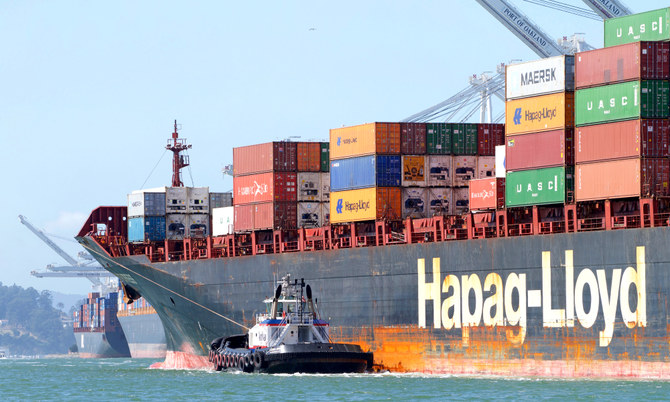
- ARAB NEWS
- 15 Jul 2025

HAMBURG: Attacks on cargo vessels in the Red Sea by Yemen-based Houthi rebels are unlikely to end soon, forcing shipping companies to avoid the route through the Suez Canal, the head of Germany’s Hapag-Lloyd told reporters on Wednesday, according to Reuters.
“We don’t think it will be over the day after tomorrow,” CEO Rolf Habben Jansen said at a news briefing in Hamburg. “Whether it’ll be one, three or five months — I don’t know.”
A political deal and a mission to protect freight vessels might bring a resolution within six months, he added.
Hapag-Lloyd, the world’s fifth biggest container liner, has joined other shippers in taking longer, costlier journeys around Africa, after one of its ships was attacked on Dec. 15.
Rerouting around Africa takes vessels 2-3 weeks longer, resulting in a drop of 150,000 standard containers being transported in December compared with original expectation, he said.
Hapag-Lloyd transports roughly one million TEU per month on its 264-strong fleet.
Mitigations have included buying more containers, adding 125,000 in TEU capacity at a cost of $350 million, it said. But using more ships to meet demand on time, and running those faster on more fuel, involved higher costs for customers.
On Tuesday, Hapag-Lloyd reported earnings before interest and tax for 2023 of €2.5 billion ($2.70 billion), a fraction of 2022’s €17.5 billion.
It cited lower freight rates as global supply chains normalized following the pandemic.
Reuters